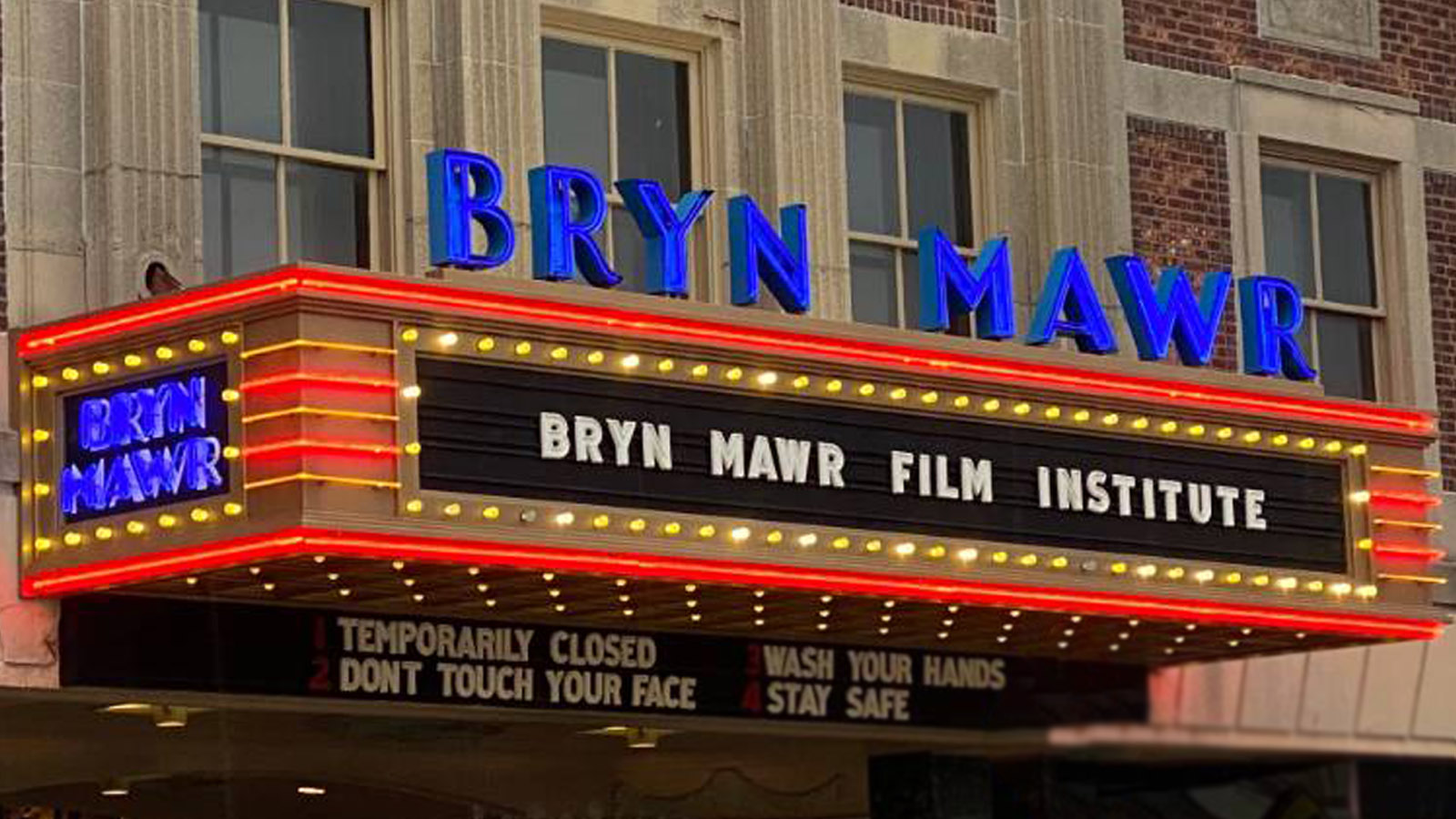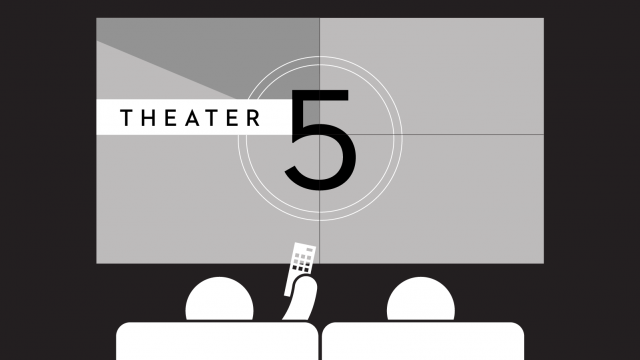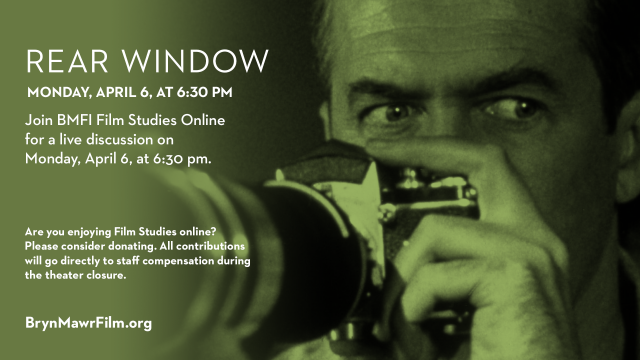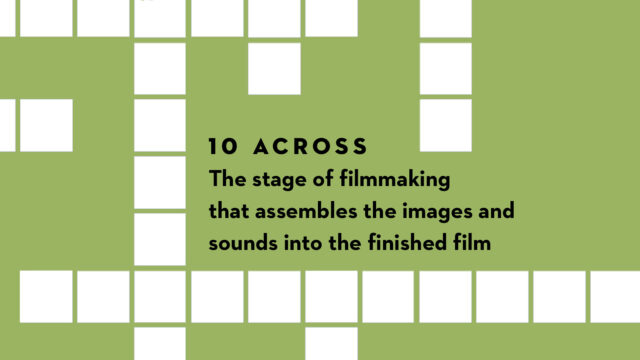2020 started out just like the previous few years – smooth operating thanks to the enormous efforts of the prior decade. The first weeks of the year looked forward to Oscar season and our 15th birthday on March 12. (There’s that date, again.)
For the first couple of months, thousands of members and moviegoers were able to enjoy wonderful arthouse fare, including main attractions like 1917, repertory titles like Whatever Happened to Baby Jane?, and classes such as Oscar Zeitgeist: Best Picture as Cultural Barometer. Illustrious guests visited for discussions, including documentarian Sarah Burns and Nilam Sanghvi, Legal Director at the PA Innocence Project, who spoke after a screening of The Central Park Five.
Then, on March 12, 2020, BMFI celebrated its 15th birthday with mini bundt cakes and . . . the declaration of a global pandemic. Literally amidst our celebration, then-Governor Wolf announced that BMFI, and all other public venues, were to be closed for two weeks to stamp out COVID-19. Then that fortnight of closure grew, eventually turning into a year. While we didn’t know that then, it was clear we were facing an existential crisis unlike any since BMFI’s founding. We had already saved our community’s beloved cinema once before, and now we’d have to do it again.

But this time it was a little easier. Instead of rescuing a dilapidated cinema, we used cinema to keep our community connected during unimaginable times. Instead of building two new auditoriums, we built the virtual Theater 5. Instead of buying tickets or registering for in-person seminars, our community sent donations—large and small—to ensure the future of their local film center. Anniversaries are times for reflection, and we had a packed decade-and-a-half to reflect on. When confronted with a seemingly unimaginable situation, we knew what to do. We’d played tough hands before. With the right mix of strong leadership, scrappy staffers, fiscally sound decisions, government support, membership contributions, donations, community enthusiasm, and some really good movies, we’d be alright.
So, we got to work. Within two weeks of closure, BMFI launched Theater 5, an online hub dedicated to one key aspect of BMFI’s mission—building community through film culture—and Film Studies Online (FSO) to honor another core element of our purpose—to educate people about and through cinema. Theater 5’s virtual cinema program presented 116 new releases and restorations, drawing more than 2,500 rentals. The Film Studies Online free weekly discussion series covered 38 films—it was literally every Monday night—drawing more than 2,800 live participants (and another nearly 5,000 who streamed the recordings) from as far away as the British Isles and Australia.






But there was even more. Each of the films to be discussed was accompanied by a video lecture about it, free of charge for all who wanted to learn, made by the instructor moderating the week’s discussion. In addition, there was “Ask Andrew,” a weekly series of film studies video mini-lessons where BMFI’s Senior Director of Education and Administration, Andrew J. Douglas, Ph.D., responded to questions about cinema history, the movie business, and other topics submitted by BMFI patrons and students. Beyond this, BMFI staff created all sorts of movie-themed puzzles, polls, and quizzes as part of the larger effort to keep our audience engaged, connected, and full of film during the darkest days of the pandemic. Each week, BMFI staff came up with a “Question of the Week” that asked for movies based on a certain topic, creating “Community Curated Lists.” You can see the hundreds of movie lists created by BMFI contributors on Letterboxd.
And for students who wanted more in-depth explorations of cinema and other visual media, there was our Remote Classroom. These online versions of BMFI seminars were modest in duration and price, but allowed both longtime and new learners to dive into a range of topics, including: On the Origin of the Cinema, All About Oscar, Thou Shalt Not: Pre-Code Hollywood, From The Sound of Music to Midnight Cowboy: What Happened to Hollywood?, Sound Comes to Hollywood, Apocalypse(s) Then and Now: Coppola’s Classic Four Decades On, Introducing Ingmar Bergman, “And All the Pieces Matter”: The Wire in 2020, Introducing Dorothy Arzner, and Returning to The Office. In all, there were 19 Remote Classroom offerings in 2020, each of which was attended by an average of three dozen students.
Film fans in our community—some of whom only discovered BMFI because of our robust online content during the pandemic—let us know how much they appreciated our efforts. Here is the body of a letter that Jan R. sent in December 2020:
I just wanted to wish all the educators at BMFI a very happy and safe holiday season. The weekly film discussions and classes have helped us through a very difficult 2020, providing a welcome distraction and exposing us to films we would, otherwise, not have seen. The discussions have helped us maintain a sense of community even though we’ve been joining the conversations from North New Jersey.
Keith C. wrote:
I’m writing to thank you for your extraordinary efforts in these difficult times to continue to provide the quality of films, education, and fun for which I’ve come to absolutely love the BMFI.
Since early 2019, I’ve become a regular at the Film [History] Discussion Series and while the in-person [sessions] are sorely missed, the Monday night [online] event is one of the highlights of my locked-down week.
Andrew, Jacob, the guest instructors and your whole team have been fantastic. Their efforts are much appreciated.
And it really did take a whole team to create, implement, and sustain Theater 5 and Film Studies Online. Behind the neatly curated virtual screens, staff were working furiously to deliver the experiences, film recommendations, and conversations BMFI’s community valued so greatly, both in “the before times” and during the pandemic. Director of Marketing Gina Izzo first had the idea to try and bring the BMFI experience to our patrons via Theater 5, so named because our building has 4 auditoria and during the pandemic, we “opened a fifth screen in your living room.” She inspired Andrew to think of a way to bring BMFI Film Studies offerings to current and new students virtually, which led to the programs mentioned above, and Gina set the overall tone for both initiatives.
Special Programming Manager Jacob Mazer curated the movies “shown” in Theater 5 and was also one of the key instructors for FSO. Education Coordinator Jill Malcolm created most of the film-focused puzzles and quizzes and was indispensable in executing the online education offerings, just as she has always been for those held on site. Sales and Marketing Associate Victoria Stern processed the hours of weekly original content that BMFI was producing. And Director of Design Heather Rosenfeldt not only identified, obtained, and configured all the online tools necessary for FSO, but she created graphics and bent platforms to her will to ensure that all the content was presented in an appealing and professional manner that was consistent with the look and quality of BMFI’s conventional offerings.
Plenty of other folks made important contributions, as well. BMFI faculty members, including Lisa DeNight, Jennifer Fleeger, and Paul Wright, donated their time and expertise to FSO and our Remote Classroom. If you ever had difficulty streaming Theater 5 films in your home, you probably spoke to Director of Theater Operations Mike McCracken and Membership and Rentals Coordinator Zane Stalberg, whose help-line assistance welcomed many members to the streaming world for the first time. (Remember when streaming and using apps on your TV was new?) Membership Manager Patricia Russo spoke to the thousands of members who reached out to the theater they support and personally processed the steady lifeblood of donations gifted to BMFI. Director of Finance Jan Prendergast rewrote the books to accommodate streaming distributors instead of the theatrical partners we were used to for Theater 5 while also working with Executive Director Sam Scott on the many governmental grant applications that sprang up during the year.
Navigating complicated federal (and other) funding programs was just one small part of Sam’s essential leadership in 2020. He had been doing the important work of leading BMFI’s diversification of its offerings and audience and focusing on staff retention since he took over as ED in 2017, and these efforts would prove to be fundamental to BMFI’s survival during the pandemic. The broader programming he encouraged, and the patrons it helped attract were much more receptive to and able to participate in Theater 5 and FSO than BMFI’s earlier audiences. And only the long-serving core staff identified above could have conceived of and implemented Theater 5 and Film Studies Online so quickly, efficiently, and creatively.
But Sam’s boldest move occurred just several weeks into the pandemic. Once it became clear that public institutions, like movie theaters, were going to remain closed for many more months (at least), many of BMFI’s peer organizations furloughed their programmatic and content-creating staff. There was pressure on Sam to do the same thing, and it was entirely understandable, given the dramatic drop in revenue we experienced during 2020 despite the generosity of our many donors. But Sam is, at his core, a showman (skip ahead a few years for the massive overhaul to BMFI’s projection capabilities for further evidence), and not only did he believe that “the show must go on,” but he also knew that it’s much easier to get back up to speed from a slow roll than a dead stop. He realized that it would be harder for BMFI to get patrons and members back if they completely stopped providing entertainment and education during the pandemic, and it would be extremely difficult to assemble as crackerjack of a staff if the current one was, essentially, dismissed.
So, Sam kept the creative team together and working (albeit with schedule and compensation reductions), which kept the audience engaged and involved, and BMFI would come to reap the benefits. Our movie attendance would come back more strongly post-pandemic than that of our regional competition, and our education programs would flat-out surpass 2019 enrollment by 18% in 2023 and by 37% in 2024. The leader of another independent theater in our area would later say that their organization made a mistake by not continuing to provide its programming during the pandemic and that they were finding it harder to “come back” because they didn’t.
Of course, movies and classes weren’t the only way BMFI kept its members engaged during those dark days of 2020. One of our most memorable offerings during that time was “Corn on the Curb,” where our loyal supporters could make a reservation for a car-side delivery of the fresh, hot, and tasty BMFI popcorn that they had been missing. The whole staff took turns delivering the warm bags of joy to patrons who pulled their cars alongside the theater on Lancaster or Central Avenues. Even with all parties masked, seeing the familiar (upper) faces of our most committed patrons was a wonderful reminder of what BMFI means to our community.
By the end of 2020, a ray of hope arrived in the form of the first COVID vaccines. This development was the first sign that 2021 might see the reopening of BMFI, and—spoiler alert—it would. But it wouldn’t be easy, and it sure wouldn’t be normal. In the coming year, we would all become familiar with terms like “social distancing,” “Needlepoint Bipolar Ionization,” and “VacCinema.” But at least we would start going back to the movies.